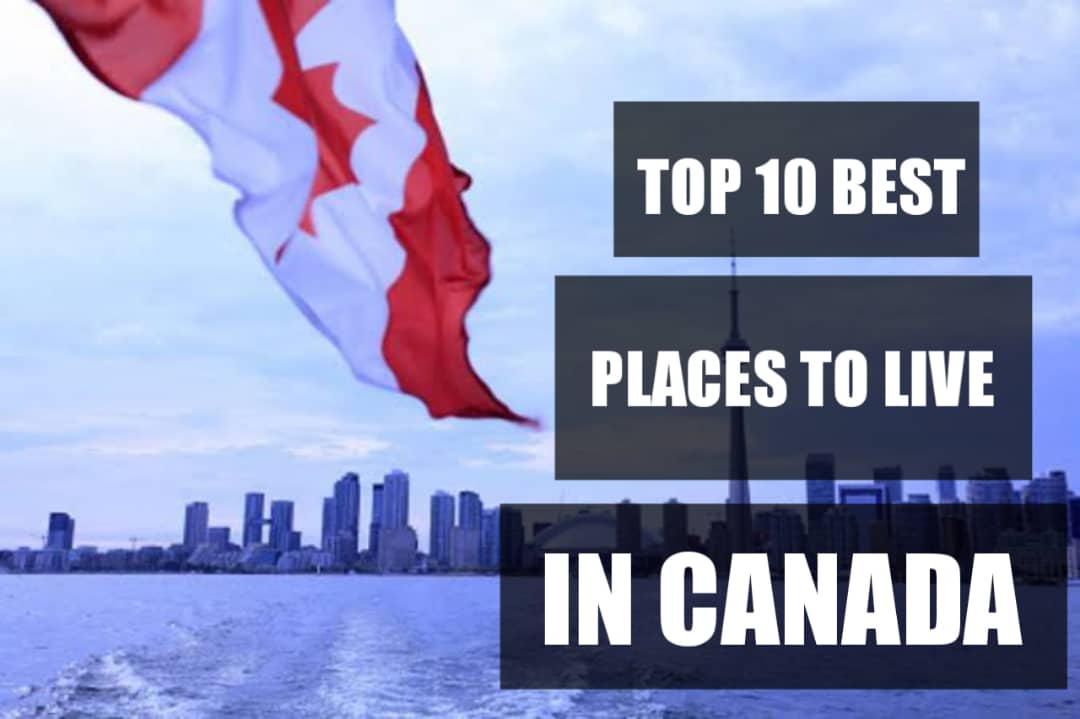
Top 10 Best Places To Live In Canada
If you believe the report of Money-sense magazine, the popular Toronto and, especially, Vancouver were not among the leaders. Despite the fact that these centers are considered to be the best for immigrants. Experts assessed the top ten optimal cities for moving based not only on the cost of real estate in comparison with average income. Facilities for families, proximity to good colleges and schools, and job opportunities were also taken into account.
Money sense rated 415 Canadian cities. Of course, experts could not include the natural beauty of each place or the friendly atmosphere created by local residents as criteria. To get the result, we combined ten more objective parameters, including economic development, availability of real estate, population growth, tax and healthcare systems, crime rates, climate, infrastructure development, and range of cultural entertainment.
Oakville (Ontario)
The leader of the list is Oakville with a population of 209 thousand people, located 30 km from Toronto. The unemployment rate is 5.7%. The average annual household income of $161,540 ($77,640 net) is the tenth highest in the country, and to buy new, quality housing, you will need about $1.2 million. Renting an apartment here is not cheap – $1,460 per month, but to save for own house, you will have to save 7.5 years.
From the outside it seems that Oakville is a great place for wealthy foreigners. But Mayor Rob Burton doesn’t think so, saying the local community is made up of people from different backgrounds. According to Money sense analysis, it is not only the best place for new residents of the country, but also one of the best for retirement and raising children (third and fifth place respectively).
The unemployment rate is high, but many local residents have no problems commuting to Toronto or Hamilton, while having the opportunity to return every day to a calm suburb with a mild climate, developed infrastructure, wonderful nature and numerous cultural attractions.
Ottawa (Ontario)
Ottawa has been a leader in this ranking for two years in a row thanks to its stable economy and affordable cost of living. But this time the Canadian capital with a population of almost a million people is only in second place. Ottawa has long developed as a large industrial city, but is now a center of high technology and cultural life. Due to the reorientation, the environmental situation has become much better, and the level of education of the local population is one of the highest in the country.
As of March 2018, unemployment in Ottawa was 5.1%. Most locals work in the service sector (including schools, hospitals). The average annual income for a family is $114,280 (less all mandatory expenses – $57,510). It won’t take much time to save up for your own home – about 4.5 years, since the average cost of real estate is $510,360. Meanwhile, rent a two-bedroom apartment available for $1,240 per month.
Mount Royal (Quebec)
The top three is completed by a small town northwest of downtown Montreal with a population of 21,170 people. Despite good living conditions, the population growth here over the past five years is low – only 5%. Possibly due to the 6.3% unemployment rate.
Although the prospects here are good. With an average annual household income of $191,670 ($92,170 net), real estate would cost approximately $1.1 million and a two-bedroom apartment would cost $1,110 to rent. Rents have remained unchanged over the past year. And to save up for your own home, it will take a little less than six years.
In 2012, the city turned 100 years old. And in 2008, most of Mount Royal was recognized as a national historical heritage thanks to the harmonious combination of modern office centers and nature: the center is literally surrounded by greenery. A railway passes through the city, there are several schools, a library, and a well-developed infrastructure.
King (Ontario)
A small city of 26,700 residents north of Toronto. Meanwhile, the population has grown by 18.4% over the past five years. King has a well-developed infrastructure, there are schools, a library, and sports clubs. At a high level – business sphere and agriculture. Meanwhile, the unemployment rate is 5.7%.
To save for your own home, it will take an average of 7.5 years with an annual family income of $191 thousand ($93,860 net) and a property value of $1.4 million. To rent a two-bedroom apartment, you will have to fork out $1.4 thousand per month, rent over the past year the price has risen by 4.2%.
Toronto (Ontario)
Despite the fact that Toronto is the largest and one of the most populous cities in the country (2.9 million people), unemployment here is on par with Milton, 5.7%, and the average annual income for a family is even lower: $105,340 and $52,180 net (after mandatory deductions and expenses).
However, housing in Toronto is also cheaper on average: $880,920. Although renting a two-bedroom apartment is more expensive than in Milton: $1,430 per month, which is 4.3% more than a year ago. It will take just over eight years to buy your own house or apartment (8.4).
Toronto has been called the economic engine of Canada. It is one of the world’s leading mega-cities. Half of the local residents are immigrants, although the cultural contrast is not bright, because the peculiarity of the city is that it supports the customs and traditions of other peoples. In terms of the number of manufacturing enterprises, educational and sports institutions, Toronto occupies one of the leading positions in Canada.
Milton (Ontario)
Milton, located 40 km from Toronto, has a population of 120,560 people. At the same time, over the past five years, the population has grown by 22.4% – one of the fastest rates, not counting Cochran (+31.5%) and Chester-mere (+24.1%). This trend is a consequence of its proximity to Toronto and good connections with Canada’s largest city.
Unemployment in Milton is 5.7%. Buying your own home would require an average of nine years of saving, based on an average annual income of $125,800 ($59,650 after taxes and expenses) and home costs ($1.1 million). A two-bedroom apartment can rent for $1,250 a month, and rental prices have risen 3.8% over the past year.
Brossard (Quebec)
The city, with a population of 89,700, has lower scores than the previous three. The unemployment rate is approximately the same: 4.9%. But saving for your own home is easier – it will take a little less than five years (4.7). Although the average annual income for a family is lower – $97,130, and after deducting basic expenses, it remains about $49,200.
But on average, housing here costs $456,440, and you can rent a two-bedroom apartment for $800. Over the past year, rents have increased by 2.2%.
Delta (British Columbia)
The city of Delta, part of the Greater Vancouver metropolitan area, has a population of 108 thousand people. The unemployment rate is noticeably lower than in Vaughn and West-mount, at 4.3%. But it will take about nine years to save up for your own home. Since the average annual income for a family is $114,590 (after deducting mandatory deductions and expenses – $59,170), and buying a home will cost $1 million.
To rent a two-bedroom apartment, you will need $1,160 per month. Over the past year, rent in the city has risen by 3.6%.
Westmount (Quebec)
The suburb of Montreal, with a population of just 21 thousand people in the southwest of the province, has a higher unemployment rate than its predecessor – 7.5%. Meanwhile, in a number of other indicators it is significantly ahead. Annual household income is almost double that ($240,200), leaving about $115,820 after deducting all mandatory expenses.
Buying a home and renting a two-bedroom apartment won’t cost much more than in Vaughan – $1.6 million and $1,550 per month, respectively. By the way, rental housing rates here have not increased over the past year. And to buy your own house or apartment, you will have to save less, since the ratio of the average real estate price to annual income is 6.6.
Despite the small number of people living, the population density here is very high, since the area of West-mount is only 4 square meters. km. The city is considered a prestigious place to live: there are good schools, a sports arena, a library, and several parks.
Vaughn (Ontario)
The city in the south of the province with a population of 332,250 people had an unemployment rate of 5.7% as of March 2018. One of the strongest industries here is construction. The average annual household income in Vaughan is $130,190, and after taxes, all bills and necessities are paid- $63,930, which can be spent on entertainment or save to buy a home.
The property costs about $1.4 million (hereinafter – the average cost of a property on the primary market; of course, if you wish, you can find a house or apartments are cheaper), and to rent a two-bedroom apartment, you will have to pay almost $1.4 thousand a month. Rent is becoming more expensive by about 4% per year, the ratio of housing costs to annual income is 10.4. That is, you will have to save for an average of 10.5 years.






